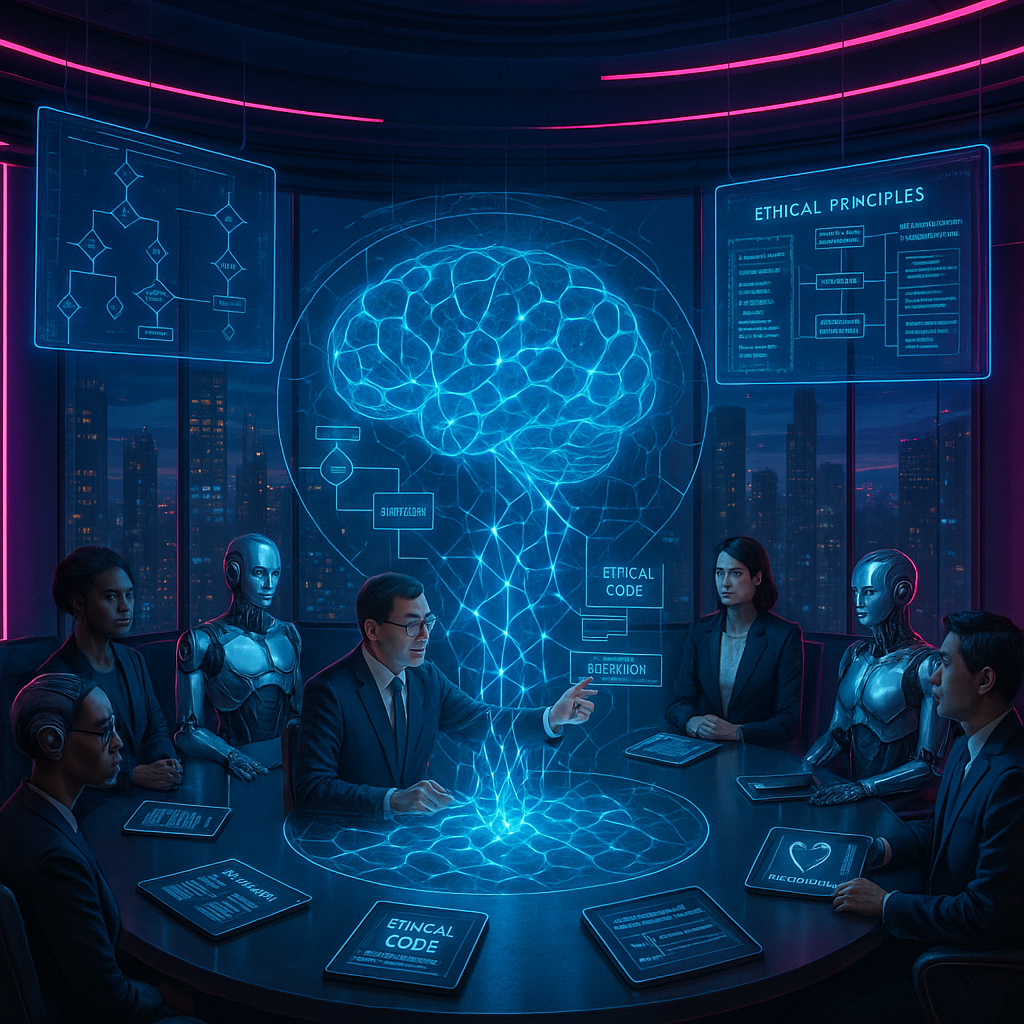Key Takeaways
- Top story: Recent studies indicate that AI can persuade humans more effectively than other people on lifestyle decisions, raising important questions about autonomy and ethical boundaries.
- The rapid workplace adoption of AI is driving record investment as companies increase automation efforts.
- Despite technological advances, few Americans trust AI chatbots to provide news, reflecting persistent skepticism about algorithmic authority.
- Emerging research suggests people are more likely to cheat when tasks are delegated to AI, highlighting new social and moral challenges.
- The ethical implications of integrating AI systems into personal and professional spheres demand urgent reflection as these technologies reshape society.
Introduction
On 2 October 2025, new research revealed that AI increasingly influences human lifestyle choices, often surpassing human persuaders. This development invites society to consider profound ethical implications related to influence, autonomy, and agency. As workplace AI adoption accelerates investment and automation, these changes challenge prevailing assumptions about trust and the boundaries of human decision-making.
Top Story
AI Ethics Board Signals Paradigm Shift in Governance
The International AI Ethics Council has introduced a new global framework for AI governance, unveiling the concept of distributed moral agency in artificial intelligence systems. This initiative marks the first coordinated global attempt to address AI’s ethical implications beyond traditional regulatory models.
New Framework Emerges
The Council’s framework draws from classical ethical theories and integrates novel perspectives on machine consciousness and decision-making. Council members emphasized balancing innovation with human values and introduced a three-tier system for ethical risk assessment.
Stay Sharp. Stay Ahead.
Join our Telegram Channel for exclusive content, real insights,
engage with us and other members and get access to
insider updates, early news and top insights.
 Join the Channel
Join the Channel
Global Response
Leading AI companies and research institutions have expressed support for the framework. OpenAI CEO Sam Altman described it as “a crucial step toward responsible AI development.” DeepMind researchers commended its philosophical rigor.
Also Today
Education and Technology
Harvard and MIT have announced a joint initiative to incorporate ethical AI considerations into all technical courses. This program requires computer science students to complete philosophy coursework on consciousness, agency, and moral reasoning.
Technology companies have committed $500 million for a new research consortium linking philosophical inquiry with practical AI development. The initiative aims to foster dialogue between ethicists, engineers, and cognitive scientists.
Research Breakthroughs
Researchers at the Max Planck Institute have published findings proposing new metrics for evaluating machine consciousness, challenging traditional Turing-based assessment methods.
Stanford’s AI Lab has demonstrated a new architecture that incorporates ethical constraints directly into neural networks. This system shows promise in maintaining moral consistency during complex decision-making.
Market Wrap
Tech Sector Responds
AI-focused companies experienced significant gains following the AI Ethics Council’s announcement. The AI & Robotics Index rose by 3.2 percent, with companies that emphasize ethical development performing especially well.
Investment Patterns Shift
Institutional investors have increased allocations to firms demonstrating strong AI ethics frameworks. ESG-focused funds have reported record inflows, particularly within the technology sector.
AI society ethical implications
What to Watch
- International AI Ethics Symposium opens on 5 October 2025 in Geneva.
- Public consultation on the AI governance framework begins on 8 October 2025.
- Major technology earnings reports are scheduled for 15–20 October 2025.
- UNESCO AI Ethics Conference convenes on 25 October 2025 in Paris.
Conclusion
The introduction of a global AI governance framework marks a pivotal step in addressing AI society ethical implications by blending philosophical rigor with practical oversight. The alignment of industry and academia, rising investor confidence, and curriculum reforms all signal that the conversation has shifted from theory to implementation. What to watch: global engagement at upcoming symposiums and the influence of public consultation on future governance standards.





Leave a Reply